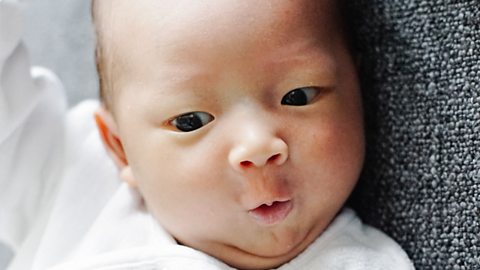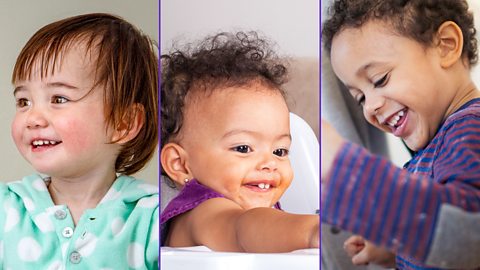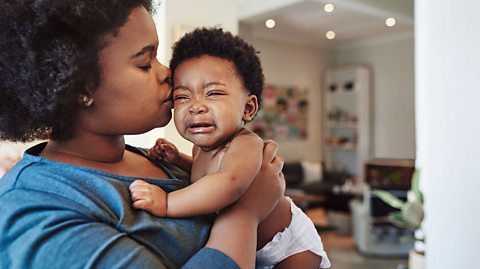If youãve got a newborn baby, chances are you've heard them cry a lot.
On average, babies cry for around 2-3 hours per day in their first few months, which is more than at any other point in their lives.
It's important to know that it's ok and it's normal if your baby cries a lot. If itãs getting to you, just ensure that your baby is in a safe position and take a few moments away to catch your breath and keep calm.
As they get older theyãll learn more effective ways to communicate, but crying is one of the main ways babies are able to let you know that they need something early on.
So what might your baby be trying to tell you when they keep crying?
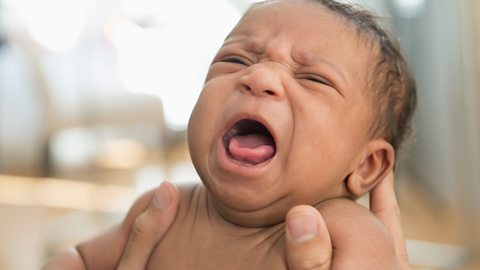
Why is your baby crying?
1. I just want a cuddle!
Babies love to be close to their parents ã think about it, they spent 9 months closer to mum than theyãll ever be, so being out and about in the world takes a bit of getting used to!
Sometimes the best way to stop babies crying is to pick them up, hold them close and have a chat or a sing-song.
Thereãs really no such thing as cuddling babies too much, so donãt listen to anyone telling you otherwise. It relaxes them and promotes the flow of the love hormone, oxytocin, which helps them to feel a strong and loving bond with their family.
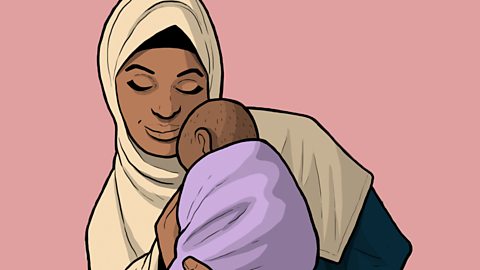
2. Iãve had enough!
Babies will often cry if theyãre overstimulated and fed up with whatever youãre doing.
Look out for them turning their head or body away from you in the middle of playtime.
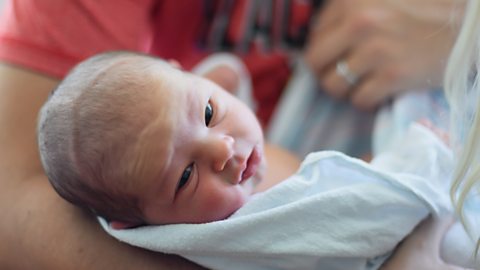
3. I'm bored!
You might find that your baby is happily cooing and babbling away, and then the next minute theyãre wailing and whining.
The reason is theyãre trying to get your attention and interact with you.
So try and take notice of when theyãre making sounds ã try copying them or talking back.
4. I'm tired!
The younger babies are, the more difficult it is to tell when theyãre tired.
Before they can express their tiredness, often the best way for a sleepy baby to get their point across is to cry.
To avoid your baby crying from over-tiredness, keep an eye out for different cues:
Being very quiet and still
Staring into space
Rubbing and touching their own eyes/cheeks
Clenching fists
These are all small signs that it might be time to put them down to sleep.
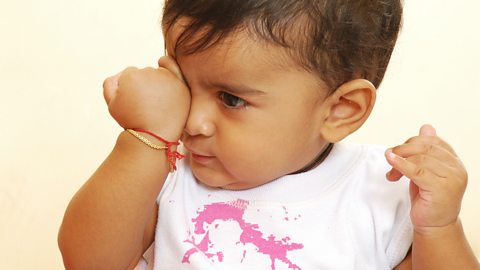
5. I'm too hotãÎ or too cold!
The best place to check your baby's temperature is on the belly or the back, so touch these places to see if you need more or fewer layers or blankets.

6. I need winding!
Sometimes your baby just needs a good burp, but the best way they can express themselves is with a cry.
Other signs to look for are kicking legs, quick breathing and a pained expression.
7. I need changing!
If youãre in doubt, check out the nappy situation.
If thereãs no obvious reason why your baby might be crying, it could be theyãve left you a lovely surprise package!
Try and distract from tears during the change by singing to baby.
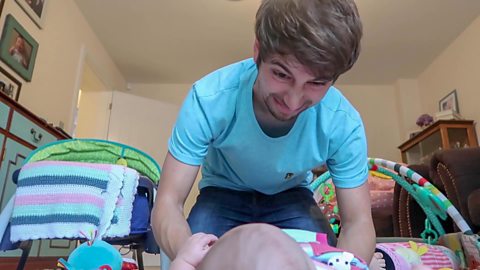
8. I'm hungry!
Hunger is a common reason for babies crying, particularly when theyãre very young. Babiesã stomachs are only small, so itãs often not long until they need another feed.
A tell-tale sign that your baby might be hungry is ãrootingã ã try touching their cheek and see if they open their mouth. This is a reflex reaction when babies are hungry, to try and find a source of milk.
Other signs include your baby making murmuring noises, turning their head from one side to another, turning their head to your chest when you cuddle them and in older babies, sucking their fingers or fist.

What if my baby won't stop crying?
Donãt panic.
There are lots of things you can try to distract and soothe them using touch and sounds.
Sometimes no matter what you try though, nothing seems to work. And just know that this is ok. Lots of babies go through a period of crying, usually peaking at around 7 weeks.
The best thing you can do is keep calm ã chances are any periods of constant crying will soon pass. If itãs getting to you, make sure baby is in a safe position and take a few moments away to take a breather.
If you are concerned that your baby might be unwell or if youãre struggling to cope with the crying, then speak to your health visitor or GP right away.
Visit the for more information on crying.
If youãre struggling to cope with your baby crying, run a helpline for support with crying babies on 08451 228 669.

